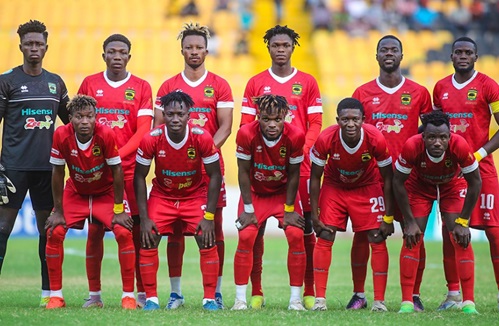With about two days to end its March 20 to April 20 special revenue mobilisation exercise, the Electricity Company of Ghana (ECG) says it has been able to retrieve close to about 50 per cent of its targeted GHc5.7 billion owed the company by customers.
While the amount is nowhere near its targeted 100 per cent recovery, the company says it is a positive sign that with a little more effort, it will further improve, adding that it is going to use the final days to aggressively round off the exercise.
The Director of Communications of the ECG, William Boateng, explained that the final days of the exercise should not be seen as being used to harass anyone or any industry, saying: “Unfortunately, we have to recover the debt to sustain not just our business but also the power production chain.”
“We owe the independent power producers (IPPs) and they have already indicated that they risk scaling down operations if the bills are not settled.
“Now where we are, we need to let the value chain survive. The value chain must be stable, else the power sector will suffer. We want customers to appreciate the fact that we are not out to harass them,” he told the Daily Graphic in an interview to give an update on the exercise.
Last month, the ECG announced that it was embarking on a revenue mobilisation exercise from March 20 to April 20 to recover all debts owed by all categories of customers, including state-owned enterprises (SOEs).
Only critical installations, such as the National Security and public health facilities, were exempted from the exercise
The company began the exercise by temporarily closing down all its administrative offices to deploy its staff to be collectors on the field during the one-month period.
The exercise is currently operational in each district and has the full backing of the Energy Ministry.
Explaining the rationale for the exercise, the Managing Director of the ECG, Samuel Dubik Mahama, told the Daily Graphic that the debt situation had reached worrying levels, for which reason it had become important to ensure that it was improved to preserve the integrity of the company.
He said while the company had an idea about the debt situation, the picture was better painted after it upgraded its digitalisation process, saying there was the need to reverse the situation before it negatively affected its operation.
“We buy power to sell and we cannot allow this situation to happen. After providing the service and the power is consumed, bills are in arrears of this huge amount, and that cannot continue to happen. We have to stay in business; our suppliers also need to stay in business, and so we are going all out to recover the arrears.
“It has got to a point where everyone needs to help. This is non-partisan, so we must all pay our bills to continue to enjoy power,” the ECG MD stressed.
Mr Boateng noted that the exercise had so far been successful, given the teamwork, camaraderie and support of administrative staff, among other things.
The understanding of all, he said, was that the company had to survive, and in order to do that, it had to retrieve money owed it, so that it would remain in operation and settle its indebtedness as well.
He said the support from the public was also an encouragement, saying the staff of the company had visited virtually all of its special load tariff (SLT) customers and others and that the work was still ongoing.
The ECG Director of Communications said some payments had been made by customers, while others had made arrangements with payment plans.
On the revised decision of not allowing regions and districts to negotiate payment with indebted customers, he said the company expected customers who were in business, SLT and others to see the payment of the usage of power as an essential line item in their scheme of things.
Asked whether the period for the exercise would be extended after April 20, he said for now there was no plan to extend the period, adding: “However there will be an evaluation of the work that has been undertaken, and based on the outcome, the management will decide if it has to be extended or not, and that that will inform the next line of action.
“However, the revenue mobilisation teams will be out to continue from where the special exercise will leave off.”
Mr Boateng said going forward, the company was going to adopt the private sector approach in its operations to ensure that it became more efficient and also effective in its revenue mobilisation activities.
The company, he said, revised its strategy because it could not continue doing the same thing and expect different results.
“That is how we are going to turn the company around because we have reached a stage where we think we should bring private sector principles into the public sector, so that the ECG becomes viable for the benefit of all of us,” he said.
With the demand for regular and uninterrupted power supply, he said, there was the need to make the company very viable.
He advised customers, particularly businesses, to see power as an essential component of their production, so that just as they planned and made provision for other production materials, so must they make provision to pay for power and not treat it as an after thought.
“We want customers to know that we are not at war with them, nor are we anti-industrialisation. We are just saying that we have reached a stage where if we want to improve on our services and provide stable power supply, we have to pay for power.
“Just as they make allocation or plans for raw materials or other essentials for their businesses and production, so must they make plans for the power they require to operate. That is an essential component of business; without it, there is no business at all,” Mr Boateng stressed.
SOURCE: Graphiconline








